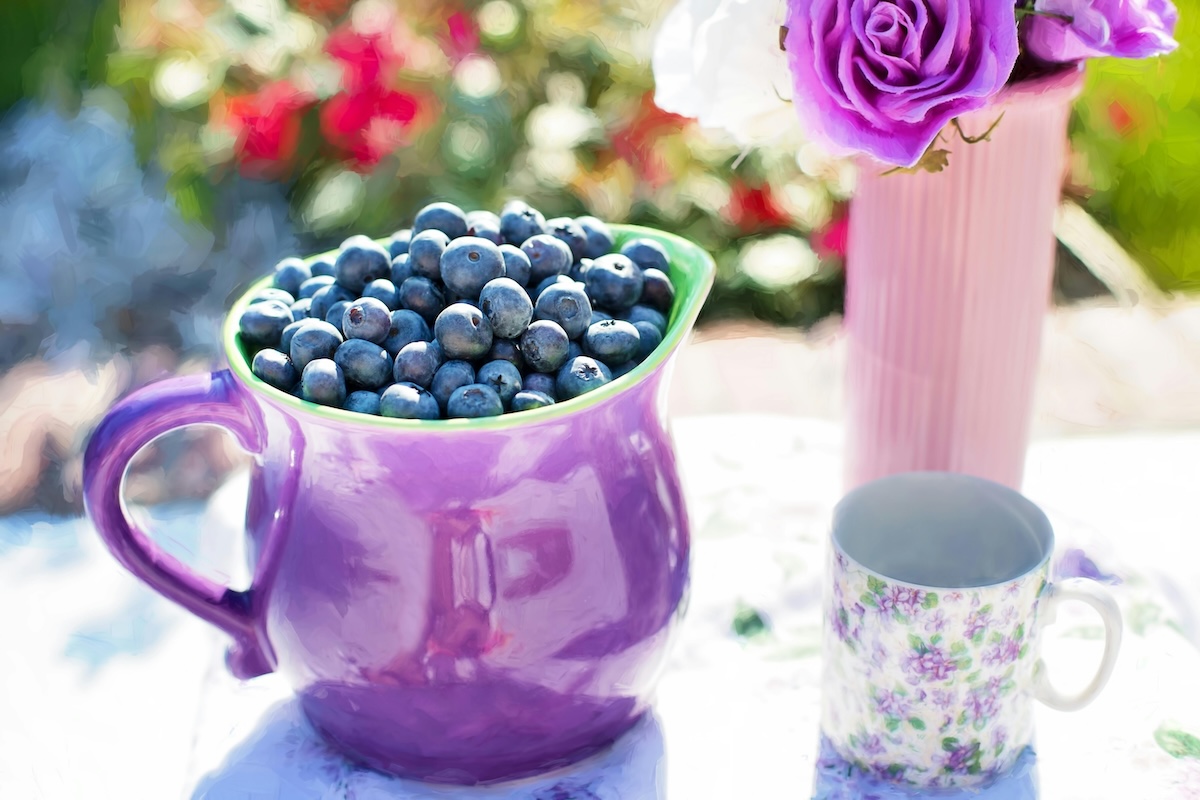
When you’re dragging in the morning, or the 3 p.m. slump sets in, heading to the coffee machine for a fifth cup of Joe is natural. Other caffeinated beverages, like energy drinks and sodas, may also provide a temporary boost. However, one dietician says the keyword is temporary. Reaching for foods that give you energy instead of defaulting to a beverage can better help you power through your day.
“Food provides our body fuel throughout the day, rather than just a quick burst of alertness like caffeine,” said Kelsey Costa, MS, RDN, a registered dietitian and nutrition consultant for the E-Health Project.
Letting coffee or caffeinated or sugary beverages fuel your day without stopping to consume food could be zapping your energy.
“Unplanned, unstructured skipping of meals can lead to significant drops in blood sugar levels, which may cause sluggishness, lightheadedness, headaches, and fatigue,” Costa explains.
Ditch all that by loading up on these energy foods that rival so-called energy drinks.

How to find foods that give you energy
Costa is going to share some concrete examples. However, first, she gave some general advice on filling your cart with foods that provide energy.
First, check the glycemic index. The glycemic index (GI) is a number that clues you into how much a food will affect your blood sugar. The lower the number, the less of the effect.
“For sustained energy levels, opt for foods with a low to medium glycemic index,” Costa said. “These are foods that burn slowly in your body, releasing glucose at a steady rate into your bloodstream.”
A high glycemic index food is best if you need a quick boost, such as before a workout. A dietician can help you determine which foods are higher or lower on the glycemic index.
Costa says that, generally, the best foods for energy are those that are packed with:
-
Complex carbs
-
Proteins
-
Antioxidants
-
Dietary fiber
-
Vitamins
-
Minerals

What foods give you energy?
Now that you have a general recipe for how to find energy-giving foods let’s dig into some concrete examples recommended by dieticians.
Blueberries
Costa loves these tiny berries, which come in season during the summer but are available year-round for their enormous energy benefits.
“Blueberries are rich in antioxidants and phytonutrients that support energy metabolism and cognitive function,” Costa says. “Their high fiber content aids in sustained glucose release, promoting a consistent energy supply throughout the day.”
Add blueberries to your morning routine – right alongside coffee or not.
“Enjoy blueberries in a morning smoothie or as a fresh topping on a whole-grain bowl for a nourishing start,” Costa suggests.
Beans
This plant-based protein is a staple in the Mediterranean diet.
“Beans are an excellent source of protein, dietary fiber, and complex carbohydrates, which provide steady energy by ensuring balanced blood sugar levels,” Costa says. “Additionally, their iron content can help prevent fatigue and enhance endurance.”
Costa recommends throwing beans on top of salad or adding them to stews for a “comforting and energy-boosting meal.”
Mango
Mangos are full of vitamins, including B6, which Costa says is critical for converting food into energy.
“Its complex carbohydrates fuel the body for extended periods,” she said. “Dice mango into salsas or salads, or enjoy it pureed in dressings for an exotic twist to dishes.”
Sweet potatoes
Sweet potatoes are a go-to starch recommendation for Costa.
“Sweet potatoes are a low-glycemic index food that provides long-lasting energy due to their complex carb composition,” Costa said. “They also contain manganese, which supports the metabolic process that converts food to energy.”
Craving something comforting and fragrant?
“Roast sweet potatoes with a dash of olive oil and rosemary for a simple, savory side dish,” Costa said.
Spinach
Spinach is a low-calorie food that’s loaded with vitamins and minerals that can boost your energy levels.
“Spinach is a powerhouse of iron, a key component in energy production as it’s essential for oxygen transport within the body,” Costa said. “Its high levels of magnesium also contribute to energy metabolism.”
The powerhouse veggie is also versatile.
“Blend raw spinach into your smoothies, add it to salads or stews, or steam spinach for a nutritional side dish,” Costa said.
Strawberries
Like blueberries, strawberries come in season during the summer months. Also, like blueberries, strawberries are like garlic to energy vampires.
“Strawberries boast a high concentration of vitamin C, critical for the synthesis of carnitine, a molecule involved in the generation of cellular energy,” Costa said. “Their fiber and fructose content provides a gradual supply of energy.”
Costa loves blending strawberries into a smoothie, slicing them up, and adding them to chia pudding.

Takeaway
While caffeinated beverages are tried and true ways to get a jolt, foods can provide more sustained energy. Steer clear foods high in refined sugar, like sodas, cakes, and cookies. Though you may get a brief rush, the boost is temporary. “This surge is followed by an inevitable crash, leaving you feeling lethargic and fatigued,” Costa said. Opt for foods low on the glycemic index to avoid surges and deflating crashes in blood sugar that affect energy. Complex carbs and foods rich in vitamins and minerals, like strawberries and blueberries, are also energy foods. A dietician can help you determine foods that are low on the glycemic index.
Editors' Recommendations
- You’ve probably never grilled these foods … but you should
- NYC restaurant Mala Hot Pot teaches us about modern Chinese hot pot
- Healthy grilling ideas: These foods will have you feeling great all summer long
- Your guide to the pescatarian diet for healthier living
- The best bars in New York City: Our top picks



